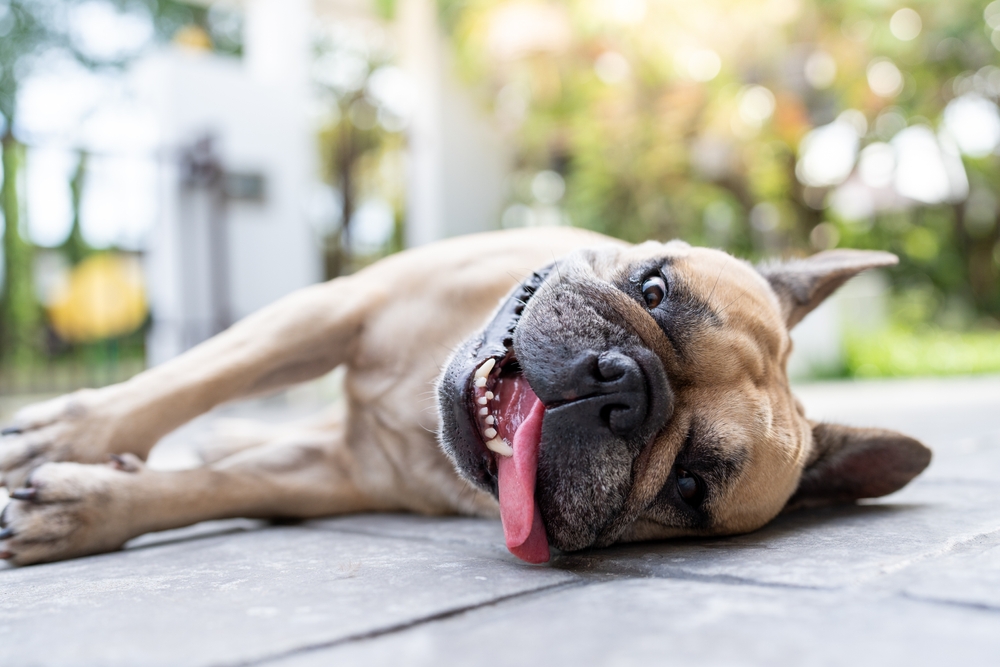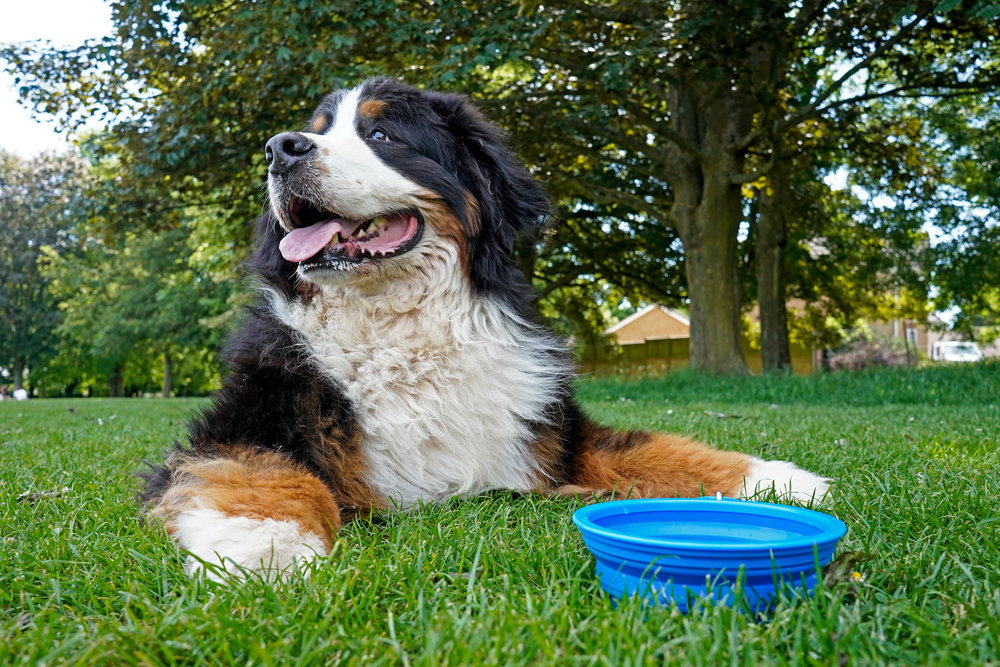Dogs’ behaviors run the gamut—from digging and barking to marking territory. A common question often asked of The Pony Express Veterinary Hospital team is, “Why does my dog pant so much?” Panting is a natural canine behavior that helps dogs regulate their body temperature. However, at times panting can mean your dog has a health issue. Learn why dogs pant and when their panting is cause for concern.
Body temperature regulation in dogs
Unlike people, dogs do not have a complex sweat gland system to help them cool their bodies. They rely on panting to dissipate excess body heat and lower their body temperature. Rapid respiration through the mouth allows dogs to cool down in warm weather and protects them from hyperthermia (i.e., heatstroke). Panting allows dogs to breathe in cool air, further aiding in the cooling process. Additionally, panting increases moisture and acts as a natural evaporative cooler, contributing to lowering dogs’ body temperature.
Dogs pant when excited or stressed
You may have observed your four-legged friend panting heavily during a veterinary exam, riding in the car, or when they spot another animal. Panting is sometimes a result of excitement, anxiety, or fear. This type of panting is usually accompanied by other body language signs such as a wagging tail, pacing, or whining. When your dog sees a favorite person or is anticipating a walk or encountering new stimuli, they may pant out of excitement. Stress-induced panting might occur during thunderstorms, fireworks, or visits to the grooming salon.
Pain can instigate panting in dogs
Panting can also be a sign that your dog is in pain or discomfort. Conditions, such as arthritis, injuries, chronic illnesses, or gastrointestinal (GI) upset, might cause a dog to pant more heavily than usual. If your four-legged friend suddenly starts panting heavily without an apparent reason, they may be experiencing a health issue that requires urgent veterinary attention.
Medical conditions in dogs that cause panting
Several medical conditions can cause excessive panting, resulting from the condition itself or the dog’s stress response to pain or discomfort. Diseases, such as Cushing’s disease, an adrenal gland disorder, can lead to excessive panting because of hormonal imbalances. Dogs with heart disease often pant heavily to be able to get enough oxygen. Respiratory conditions, such as laryngeal paralysis or brachycephalic syndrome—common in breeds such as bulldogs and pugs—can make breathing difficult, leading to frequent heavy panting.
Medications that cause panting in dogs
Specific medication side effects can cause dogs to pant excessively. For instance, prednisone, a steroid often prescribed for inflammation or immune system issues, can lead to increased thirst, hunger, and panting. If your furry pal is panting more heavily after beginning a new medication, contact The Pony Express Veterinary Hospital team immediately to ensure your furry pal is not having an allergic reaction.
Dog panting as thermoregulation
Even while your dog sleeps, they may pant to regulate their body temperature. This behavior can occur if your dog becomes overheated or is having an intense dream. Ensuring your dog has a cool sleeping spot in a temperature-regulated environment can help minimize their panting during rest.
Dog panting: When to be concerned

While panting is a normal, healthy behavior, at times it could indicate a serious issue. Watch for the following canine distress signs:
- Excessive panting — If your dog’s panting is continuous and unrelated to warm weather or exercise, they may have a health problem.
- Labored breathing — If your pup’s panting is accompanied by wheezing, coughing, or respiratory difficulties, seek veterinary attention immediately.
- Behavioral changes — If your dog’s panting is paired with behavior changes, such as lethargy, inappetence, or vomiting, schedule a visit with our veterinary team.
Knowing the context of your four-legged friend’s panting is crucial for our team to ensure your dog is healthy and comfortable. While panting is a necessary behavior for temperature regulation and emotional expression, you should recognize when the behavior might signal a health issue.
By paying attention to the context and frequency of your dog’s panting, you can better understand their needs and provide appropriate care for your furry friend. Is your dog panting persistently, or are they exhibiting illness signs? Call The Pony Express Veterinary Hospital team to schedule your pup’s thorough health exam.

